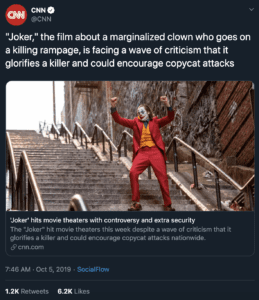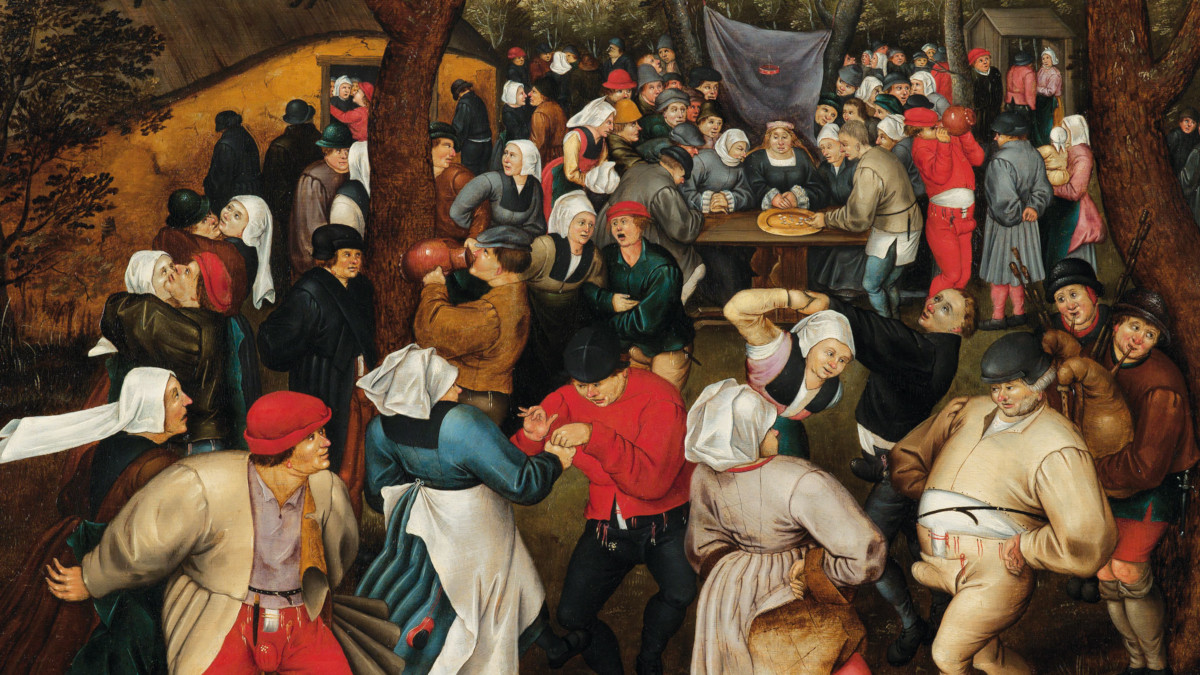Dislaimer: Spoiler Alert
Since its launch at the Venice film festival which received an 8-minute standing ovation from the audience, the Joker has drawn a huge amount of attention from the media. Much of the speculation revolved around Joaquin Phoenix’s portrayal of the character – would he be able to live up to the expectations set by Heath Ledger or would he disappoint like Jared Leto? However, since the movie’s release the main talking point in the media hasn’t been Phoenix’s performance (which has been roundly lauded), it’s what the film says about and to society that has been under contention.
The movie is set in 1981 in a Gotham City in decay, one that is ravaged by unemployment, poverty and violence. Arthur Fleck is a struggling entertainer and stand-up comedian whose mental health issues and disillusionment with society overtake him and cause him to go on a killing spree and become the Joker. Initial reports from mainstream media sources criticized the film for “glorifying violence” and possibly encouraging copycats. Such criticism stemmed from the fear that similarly isolated individuals would be inspired by seeing the protagonist seem emancipated by murdering a couple of upper-class bullies.
In particular, news outlets singled out the threat of Incel (Involuntary Celibates) terrorism. Incels are part of an online community of young, mostly white men who define themselves as unable to find a sexual partner which they often attribute to modern feminism. At the root of their hatred is loneliness, a trait that Arthur Fleck exhibits throughout his transformation into the Joker. Many mass murderers have been found to have affinities to this community, with perhaps the most prominent incident occurring in Toronto in April of 2018 when a 25-year-old man drove his car into a crowd of people, killing 10 and injuring 14 others. Just hours before the attack, he had posted “The Incel Rebellion has already begun” on his Facebook page.

Despite the precedent set by such a community and the subject matter of the movie, there was no real cause for concern. However, the media and CNN, in particular, have received criticism for their coverage of the movie which seems to encourage the links between the Joker’s subject matter and mass shootings. While there’s no doubt profit-oriented news sources have always been prone to sensationalism, such reckless reporting was roundly called out for its hypocrisy.
Meanwhile, in leftist circles such as those who follow the Socialist philosopher Slavoj Zizek, views of the movie were diverse, ranging from a straightforward condemnation of American austerity to an absolute Marxist masterpiece. The most straightforward evidence of such a political message occurs when Arthur’s counseling sessions are canceled due to budget cuts for social workers. “They don’t give a shit about people like you, Arthur,” his counselor tells him, referring to those who cut the budget. “And they don’t give a shit about people like me either.” The black, female social worker telling the white public service user that their interests are aligned against the billionaire class is as obvious of an indicator of class consciousness as can be.
At many points in the movie, this message is candidly portrayed, including when Arthur is literally punched in the face by the archetype of the condescending elite, Thomas Wayne. The billionaire who is running for mayor calls people in the streets “clowns” with a disdain that originates from his belief that he’s the only one who understands that he’s there to help them.
A subtler reinforcement of ideology is the intentional doubt sowed in the viewers’ minds regarding whether Arthur’s mother was actually mentally ill and suffered from a delusion. A Marxist viewing of the movie tells us that she was actually telling the truth about her and Thomas Wayne’s, but as it would be damaging to his reputation, he forged documents regarding their son’s origins and had her admitted into a mental institution.
The concept of the Joker being a political character is not a new one. In past appearances, he was a self-professed anarchist. However, this particular portrayal of the origins of the character allows for various diverse interpretations of what he stands for. The riots that followed the arrest of the Joker suggest that people see him as a liberator. However, is it irresponsible to end a movie with a mentally ill, mass murderer being hailed as an icon? That is for you to decide.
Image found in CNN’s twitter







